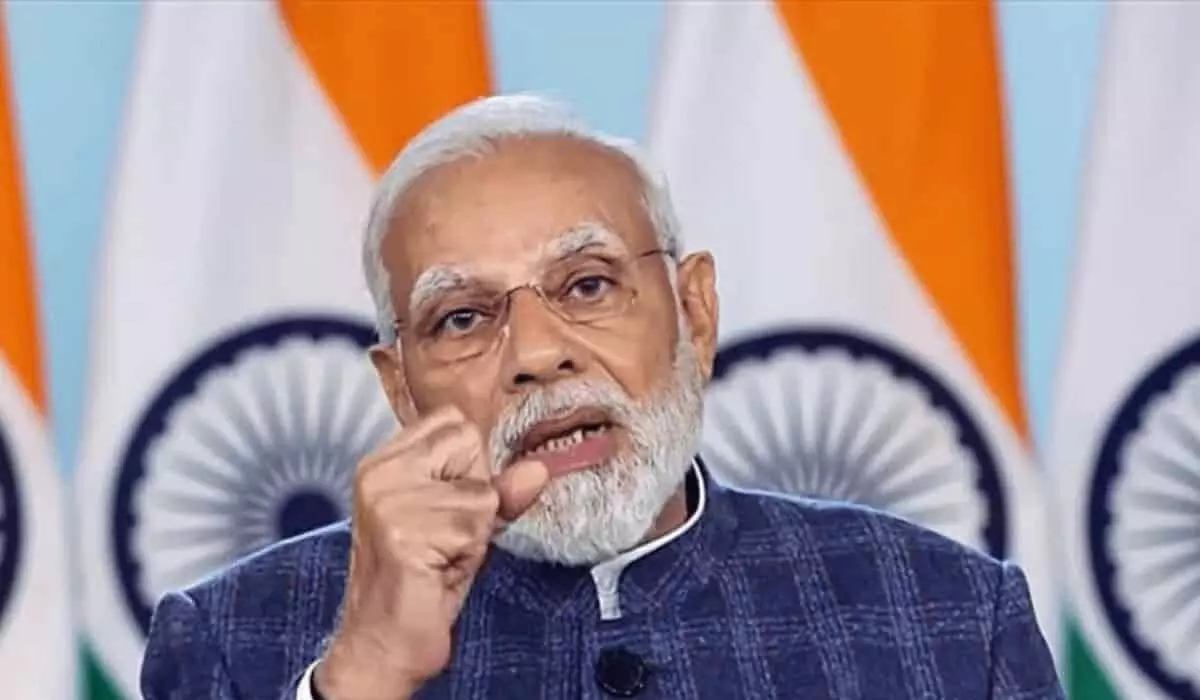Develop every village to make India developed by 2047: PM at BJP meet
Says those serving in different positions at local bodies should take up some work for their villages
image for illustrative purpose

New Delhi Prime Minister Narendra Modi on Friday urged BJP’s ‘Zila Panchayat’ members to work to make various development initiatives a mass movement, asserting that “lamp of development has to be lit up in every village, tehsil and district to make India a developed country” by 2047.
Addressing virtually a “Kshetriya Panchayati Raj Parishad” of local body members drawn from several states, including Gujarat, Maharashtra and Madhya Pradesh, he said ‘sabka saath, sabka vikas’ is not merely a slogan for the Bharatiya Janata Party (BJP) and they should live it every moment. The conclave is being held at Dadar and Nagar Haveli and Daman and Diu where BJP president J P Nadda was also present during the prime minister’s address.
Citing his own experience first as chief minister and then as prime minister, Modi said those serving in different positions at local bodies should take up some work for their villages and districts as a priority and go all out to make it a success by getting people’s support. Upon coming to power at the Centre, Modi said he decided to build toilets and open bank accounts for the poor.
He urged Zila Panchayat members to hold meetings to take up three projects as a priority every year while noting that fund for local bodies has risen manifold and resources are not a constraint. “Earlier, the grant used to be of Rs 70,000 crore, but it is now over Rs 3 lakh crore. We have built over 30,000 Zila Panchayat buildings,” he said, stressing on using part of MNREGA budget for asset creation as well. He noted that BJP members from local bodies have been holding similar workshops and said the party does not do it for winning polls but to work towards making India a developed country by 2047.
Talking about the Vishwakarma scheme announced by him on the 77th Independence Day, Modi urged party workers to make a list of traditional artisans in the villages, and suggest ways of helping them. “... There are traditional artisans in every village who contribute to the village economy. They do their work as a social responsibility. Such societies see no criminal activities as people live together in harmony. We want to empower them,” he said.

